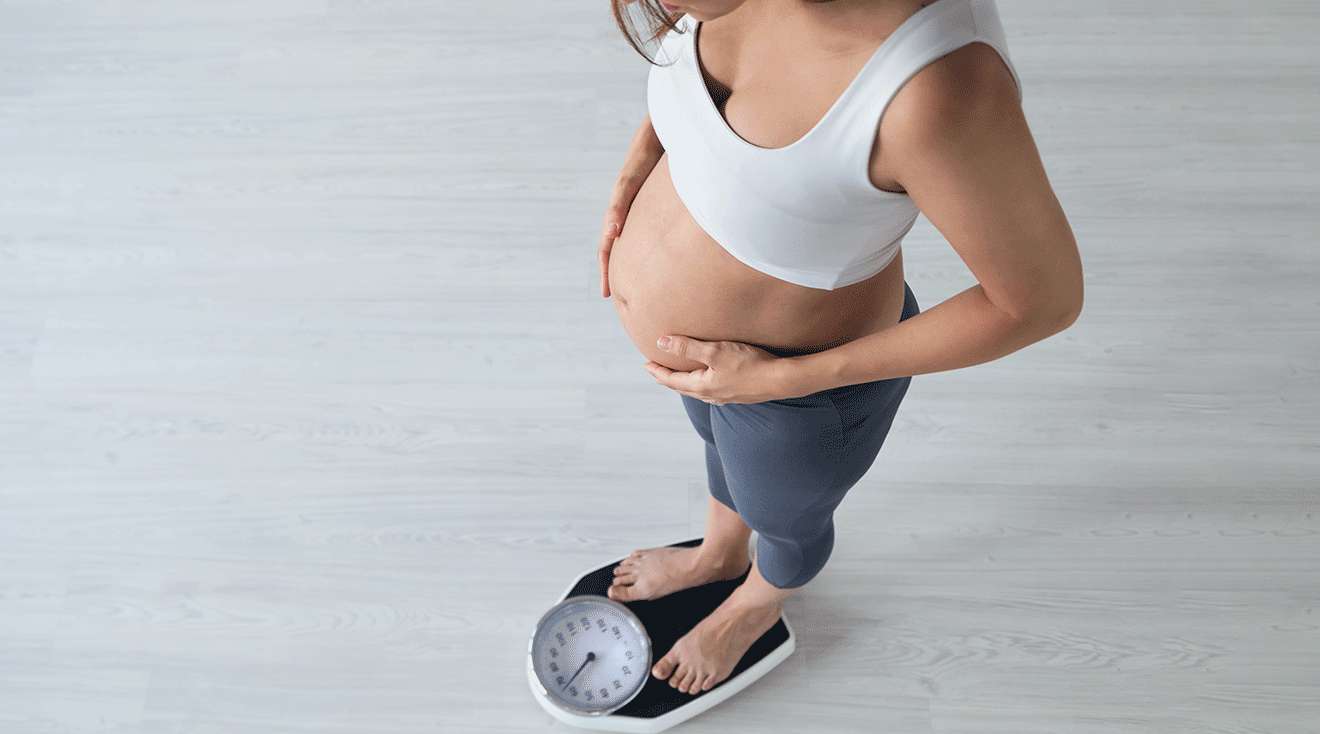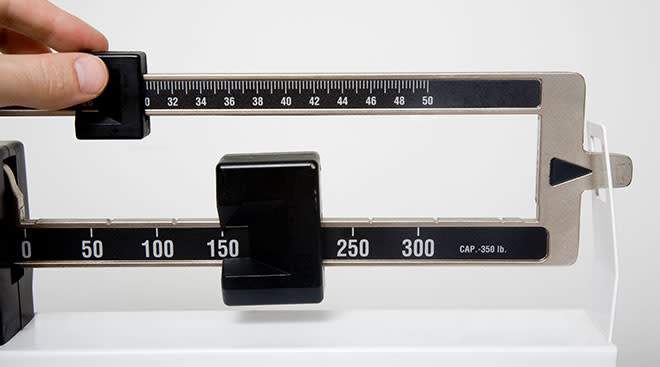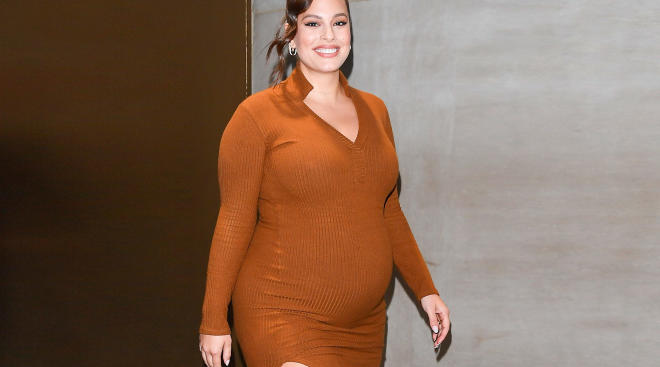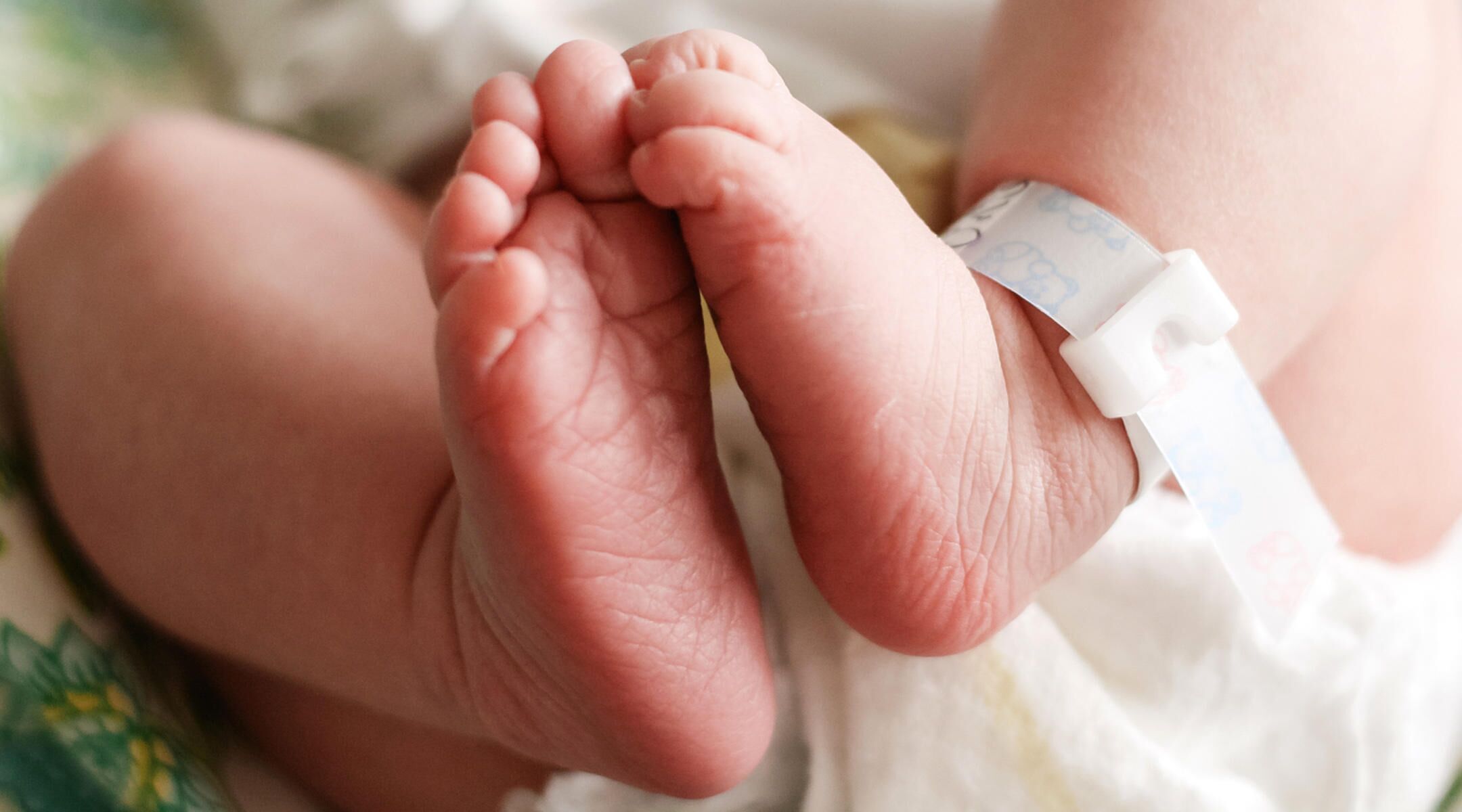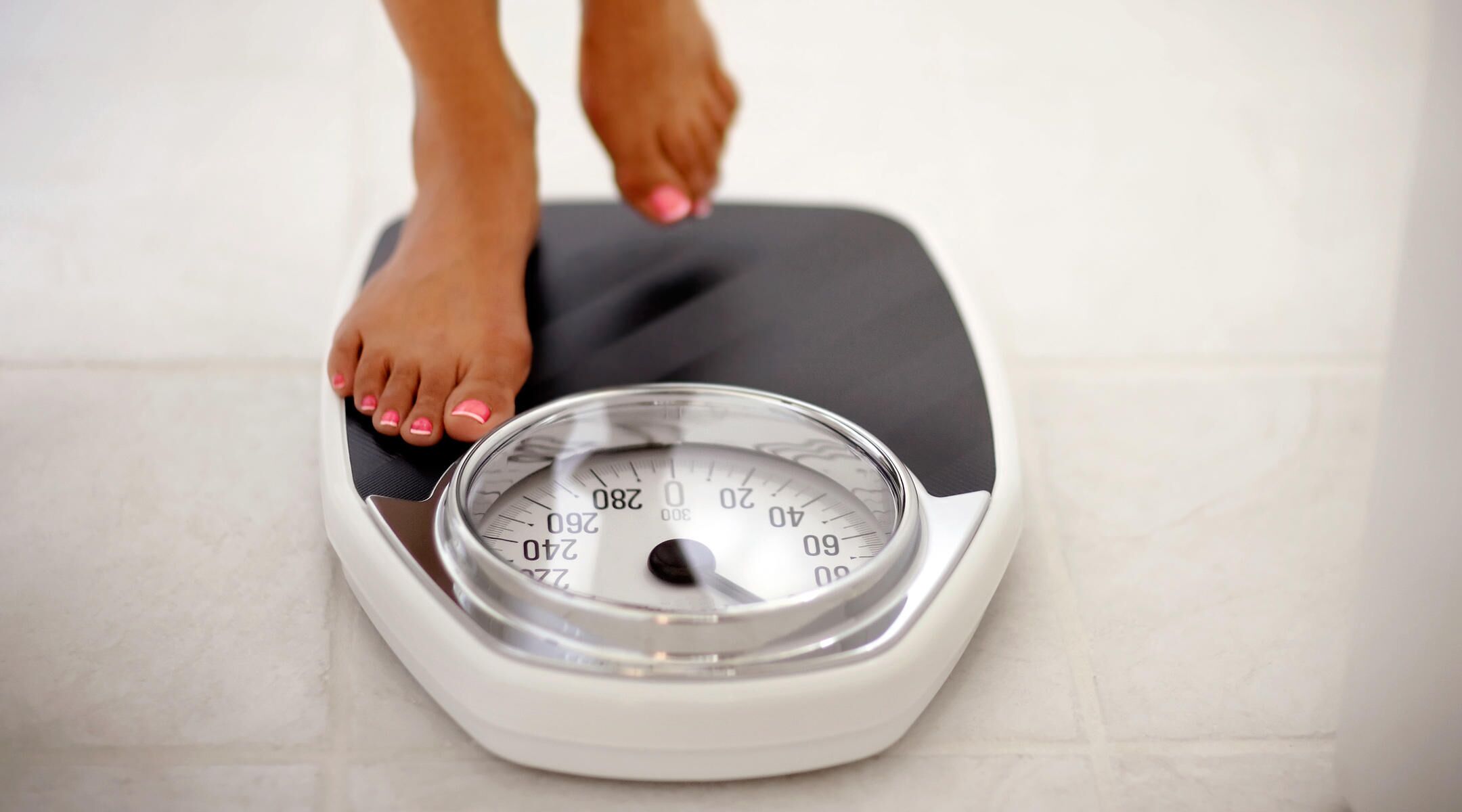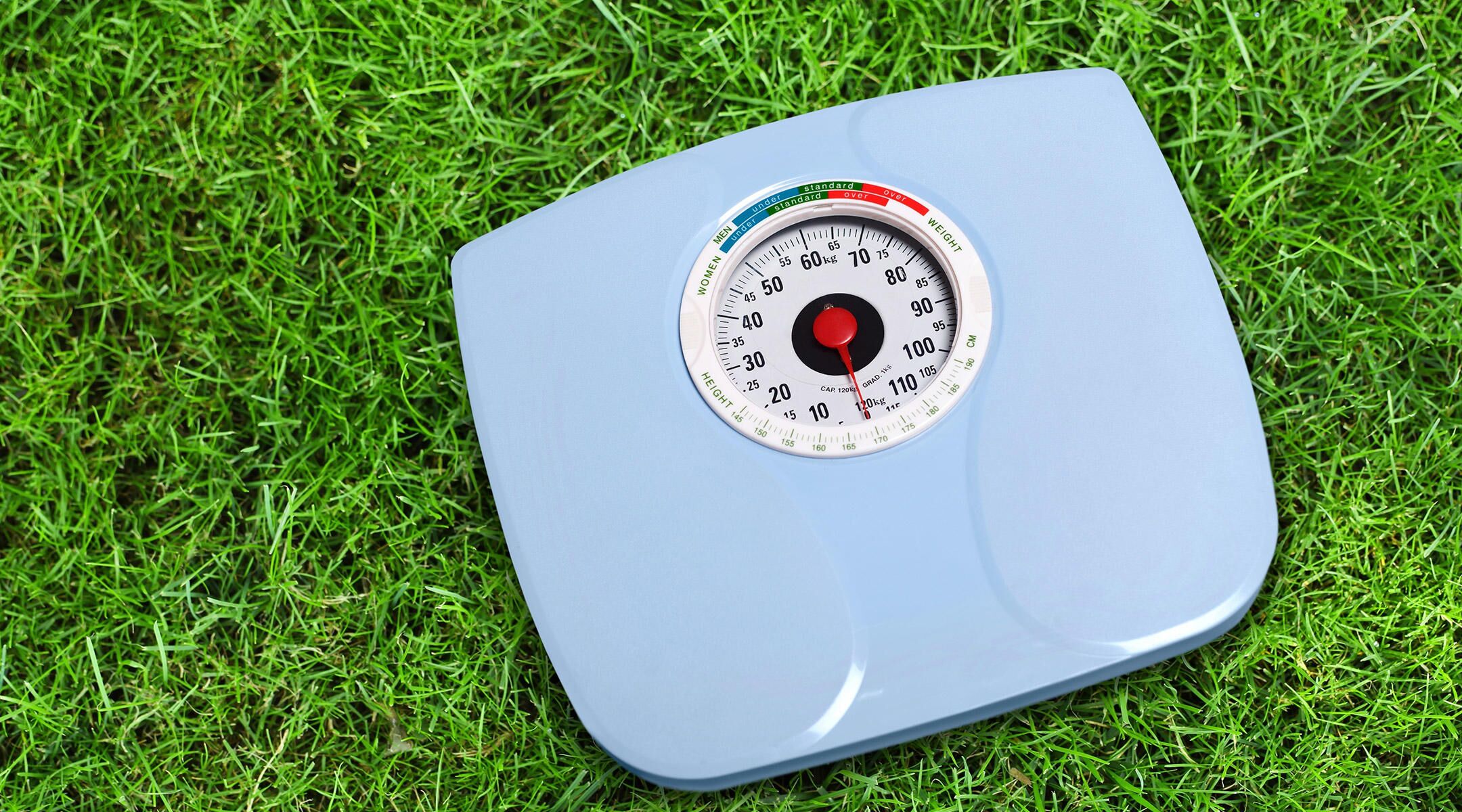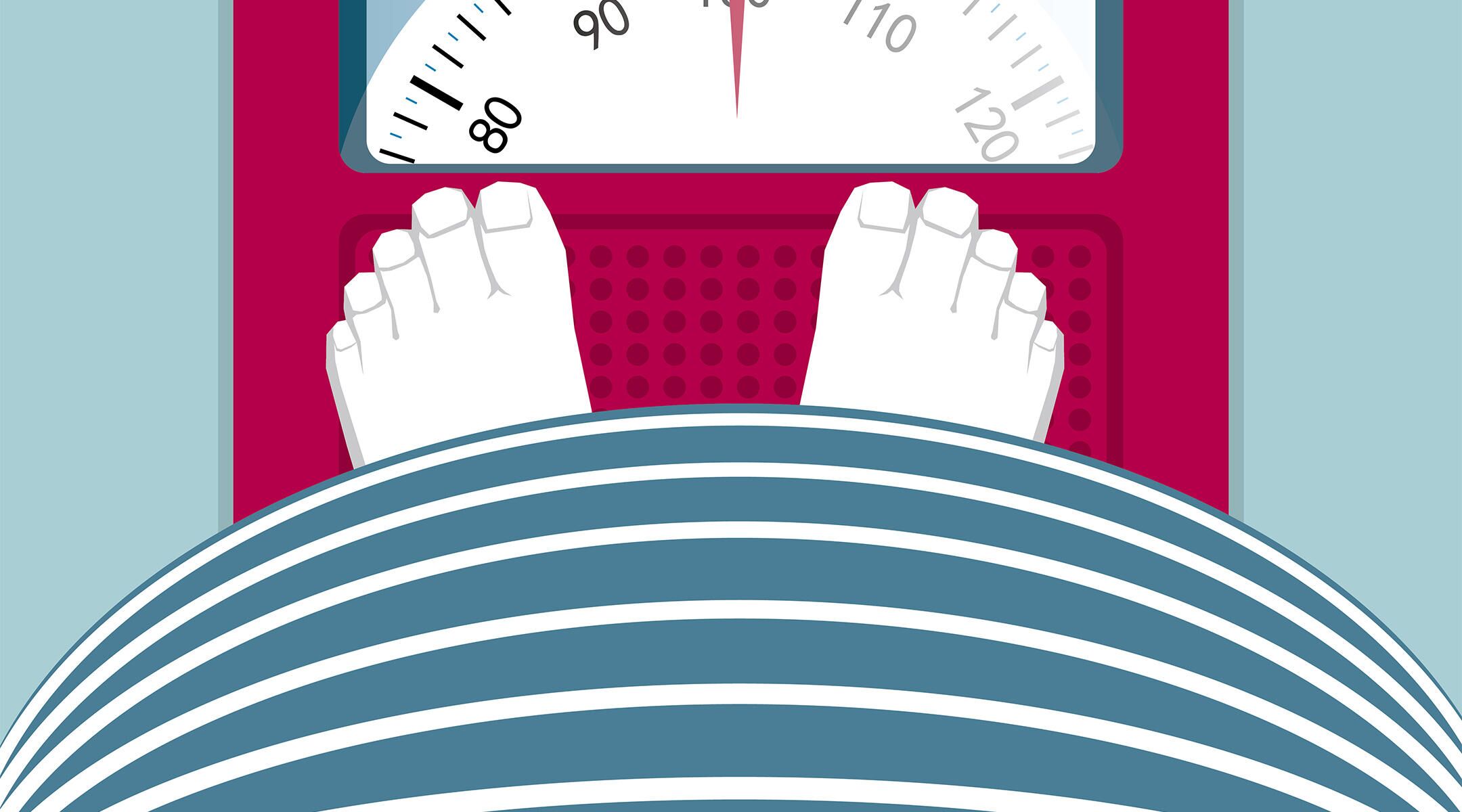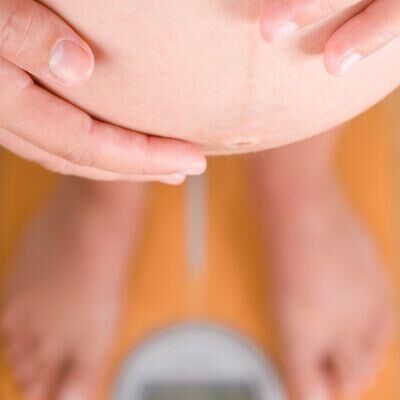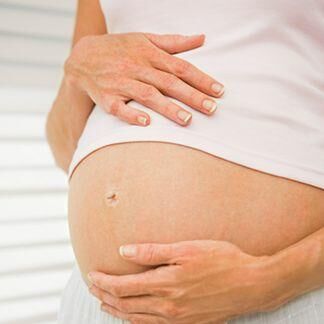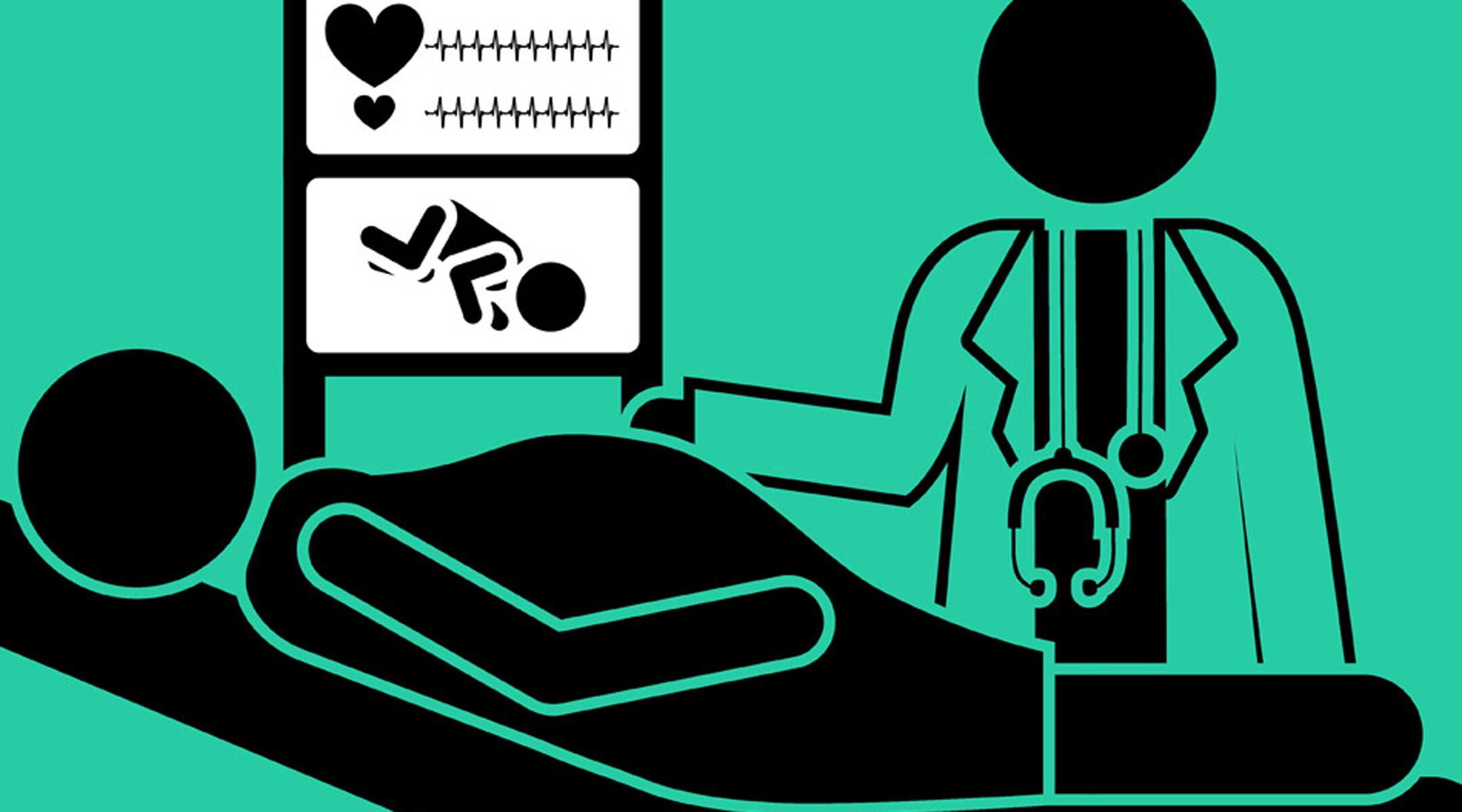Why You Might Be Losing Weight While Pregnant
Soon-to-be moms and their doctors talk a lot about pregnancy weight gain. After all, the Centers for Disease Control and Prevention (CDC), generally advises that women put on a total of 25 to 35 pounds during pregnancy, depending on their BMI. But what if you’re losing weight while pregnant? It can happen. Depending on when and how it occurs, pregnancy weight loss can be perfectly normal—but it can also be concerning. Read on to find out the possible causes of weight loss during pregnancy, how you and baby can get the nutrients you both need and when to call your doctor for help.
Generally speaking, no mom-to-be should intentionally try to lose weight once she knows she’s pregnant, even if she’s overweight. Research shows that losing weight on purpose during pregnancy can increase the risk of complications for baby. Further, restricting calories and nutrients can be harmful to you and your developing child, says Pooja Shah, MD, an ob-gyn in Chandler, Arizona.
If you are overweight or obese and pregnant, your doctor will offer you advice on managing weight during pregnancy to avoid possible complications. “For weight gain during pregnancy, we base our recommendations on what mom’s pre-pregnancy BMI is,” says Kimberly Henderson, DO, an ob-gyn at Nuvance Health Northern Dutchess Hospital in Rhinebeck, New York. According to the CDC, women with a BMI of 30 or more should gain between 11 and 20 pounds during pregnancy. “Women with a BMI of over 40—may not gain any weight in their pregnancy,” Henderson says. (More on this below.)
While weight loss during pregnancy isn’t recommended, it’s still possible for you to find yourself losing weight while pregnant, even if it’s not intentional. Read on to learn what might be causing you to drop those pounds and what you should do about it.
Doctors note that most women gain only between 1 and 5 pounds in the first three months of pregnancy, so if you’re experiencing weight loss in your first trimester, chances are, it’s nothing to worry about. “It’s not uncommon for women in their first trimester to lose a little bit of weight due to bad nausea and vomiting that precludes them from eating in a normal way,” says Henderson. A loss of appetite because of morning sickness is a common cause of pregnancy weight loss too. According to Henderson, it’s only a cause for concern if pregnancy weight loss hits 5 to 10 percent of a woman’s total body weight.
Weight loss during pregnancy could also happen if you’ve begun exercising daily and making a point of eating healthier foods for you and baby. If that’s the case you might need a few extra calories throughout the day to support your quickly growing baby, depending on your weight and BMI.
In very rare cases, pregnancy weight loss that’s progressive and/or excessive might be a sign of hyperemesis gravidarum, a complication characterized by severe morning sickness. This means throwing up more than five times a day, severe stomach pain and/or signs of dehydration. You might also not be peeing much, your urine is dark and you feel weak or dizzy. If you experience any of these symptoms or if you simply can’t keep anything down, call your doctor or midwife. “You should feel comfortable having an open conversation with your ob-gyn about weight gain goals in pregnancy, visit-to-visit weight changes and any worrisome weight gain or loss,” says Shah.
Weight loss in the third trimester could be especially disconcerting. Losing weight while pregnant at this late stage could be related to poor baby growth, low amniotic fluid or pregnancy-induced hypertension or preeclampsia. If you’re losing weight and it’s beyond your first trimester, call your provider. It could very well be something harmless—such as fluctuations in day-to-day water retention—says Shah. But to be safe, it’s always best to consult with your doctor.
By all means, talk to your doctor if you’re experiencing weight loss during pregnancy, if you feel dizzy or weak or if you can’t find relief for your nausea or vomiting. This is important at any time during your pregnancy, but it’s especially crucial in the second or third trimester. Your doctor or midwife will work on zeroing in on the cause (including perhaps doing some lab tests) and then recommending the best course of action based on their findings. In the case of nausea, the antidote may be as simple as an over-the-counter supplement, such as vitamin B6, or a prescription-strength medication. Oftentimes, IV fluids can help with dizziness and weakness.
Beyond that, says Henderson, eating thoughtfully is key to maintaining health and avoiding losing weight while pregnant. Keep these strategies in mind:
- Eat smaller meals and space them out
- Avoid foods and smells that gross you out
- Eat a little something—like a cracker—immediately after you wake up in the morning
- Take your prenatal vitamin faithfully
- Add about 300 extra calories a day, depending on your weight and BMI; the easiest way to accomplish this is with healthy snacks between meals
- Stay hydrated
Frequently Asked Questions
Is it possible to not gain weight during pregnancy?
During the first trimester, it’s normal to not gain weight in pregnancy. For women who are obese, experts note it is possible not to gain weight during pregnancy by following a consistent exercise regimen and eating a nutritious diet.
When do you stop gaining weight during pregnancy?
Most pregnant women will usually see their weight gain slow as they get closer to their due date, during the end of the third trimester.
How much weight do you lose after birth?
After childbirth, you’ll lose weight from baby, the placenta and retained water, which could all total anywhere from 10 to 15 pounds.
Weight can be a tricky topic for most, even outside of pregnancy. Add the responsibility of baby’s health into the mix and the prospect of managing, gaining and losing weight during pregnancy can be stressful and emotional. But hang in there and remember that your prenatal care team is the best resource to turn to with any questions around monitoring, managing and losing weight during pregnancy.
Please note: The Bump and the materials and information it contains are not intended to, and do not constitute, medical or other health advice or diagnosis and should not be used as such. You should always consult with a qualified physician or health professional about your specific circumstances.
Plus, more from The Bump:
Kimberly Henderson, DO, is an ob-gyn at Nuvance Health Northern Dutchess Hospital in Rhinebeck, New York. She earned her medical degree from Chicago College of Osteopathic Medicine-Midwestern University and completed her residency at Hartford Hospital in Connecticut.
Pooja Shah, MD, is an ob-gyn in Chandler, Arizona with over a decade of experience. She earned her medical degree from University of Illinois College of Medicine at Chicago.
PLOS One, Weight Loss Instead of Weight Gain within the Guidelines in Obese Women during Pregnancy: A Systematic Review and Meta-Analyses of Maternal and Infant Outcomes, July 2015
Centers for Disease Control and Prevention, TRACKING YOUR WEIGHT For Women Who Begin Pregnancy with Obesity
American College of Obstetricians and Gynecologists, How much weight should I gain during pregnancy?, August 2021
National Institute of Diabetes and Digestive Kidney Diseases, Understanding calorie burning in early pregnancy—moving toward improving health for mothers and children, July 2018
American Pregnancy Association, Natural Sources of Vitamin B During Pregnancy
Learn how we ensure the accuracy of our content through our editorial and medical review process.
Navigate forward to interact with the calendar and select a date. Press the question mark key to get the keyboard shortcuts for changing dates.
































